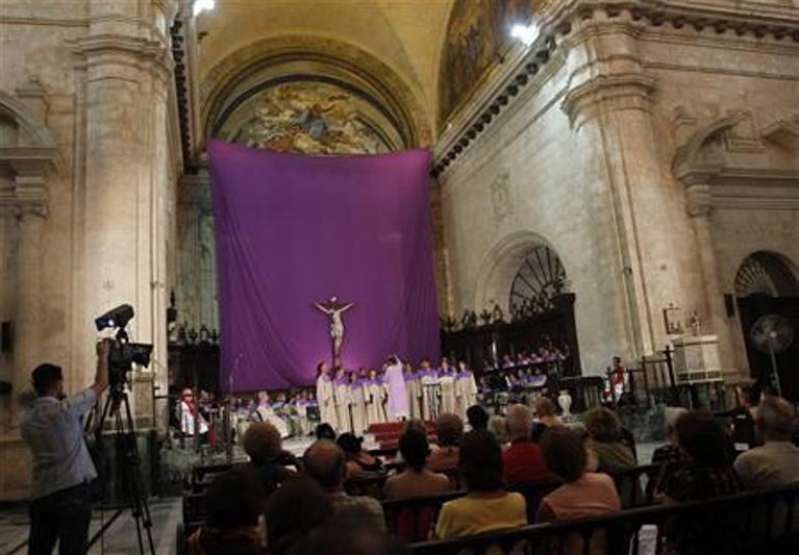
Cuban pastors and worshippers say they are in the middle of a boom in evangelical worship, despite the country's atheism-anchored history.
Tens of thousands of Cubans are worshipping undisturbed across the island each week, reports The Associated Press. While Cuban government officials now recognize freedom of religion, they don't grant the right to build churches or other religious structures. AP reported that while Cuba officials demolished a handful of churches in recent years, they allowed their members to continue meeting in makeshift home sanctuaries.
The Roman Catholic Church is Cuba's dominant denomination. But local reports indicate evangelical church representatives have begun providing the social services once handled by the Communist government.
"There's a revival of these churches, of the most diverse denominations in the country, and all of them are growing, not just in the number of members, but in their capacity to lead and act in society," said Presbyterian pastor Joel Ortega Dopica, president of Council of Churches of Cuba, an officially recognized association of 32 Protestant denominations. "There is religious freedom in Cuba."
Fidel Castro's government in the 1960s held that atheism was law. Faithful residents had to hide their Bibles in brown-paper covers.
Clergy and academics now estimate Cuba's 11 million people include some 40,000 Methodists, 100,000 Baptists and 120,000 members of the Assemblies of God, which had roughly 10,000 members in the early 1990s, reports Fox News, when Cuba began easing restrictions on public expressions of religious faith. The church council estimates there are about 25,000 evangelical and other Protestant houses of worship across the country. About 60 percent of the population is baptized Catholic, with many also following Afro-Cuban syncretic traditions, such as Santeria.
A 1998 visit of Pope John Paul II to Cuba led to new liberties for both Catholic and Protestant worshippers.
While the Cuban constitution now recognizes freedom of religion, it doesn't allow for constructing churches, and virtually all activities are presumed illegal unless the law states they are not. Authorities in some areas prohibited new churches, but allowed worship in religious buildings erected before Cuba's 1959 revolution.
The London-based advocacy group Christian Solidarity Worldwide issued a report alleging the Cuban government committed 2,380 violations of religious liberty in 2016, most linked to the declaration of 2,000 Assemblies of God churches as illegal, with 1,400 in process of confiscation. The group's representatives said they based the information on a source inside Cuba, but would not identify any names.
Juan Whitaker, the Assemblies of God's treasurer in Cuba, told AP none of its churches had been declared illegal or were at risk of confiscation.
David Ellis, regional director for Latin America and Caribbean for world missions of the Missouri-based General Council of the Assemblies of God, told the AP, "We are in ongoing contact with the Cuba Assemblies of God leadership and they have not reported any churches being confiscated. Neither have they reported that churches have been threatened with confiscation."
Cuban church congregants now are working on projects that once were forbidden to them, including AIDS prevention, sustainable agriculture, renewable energy, medicine distribution, training of farm workers and disaster relief.






